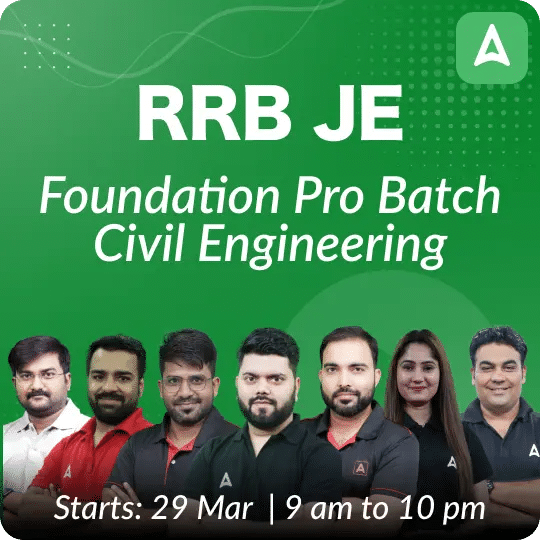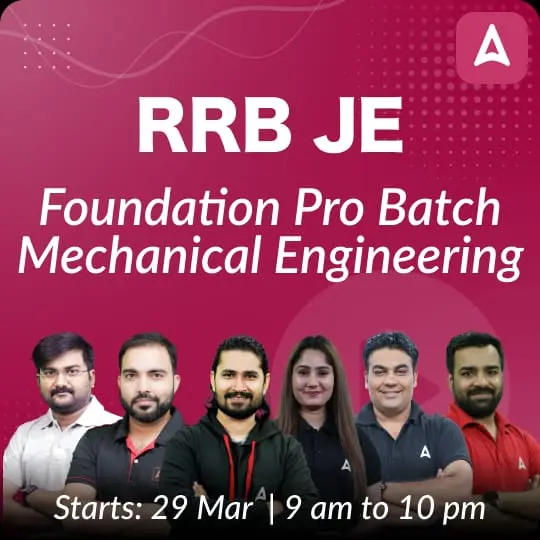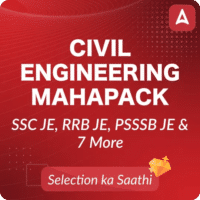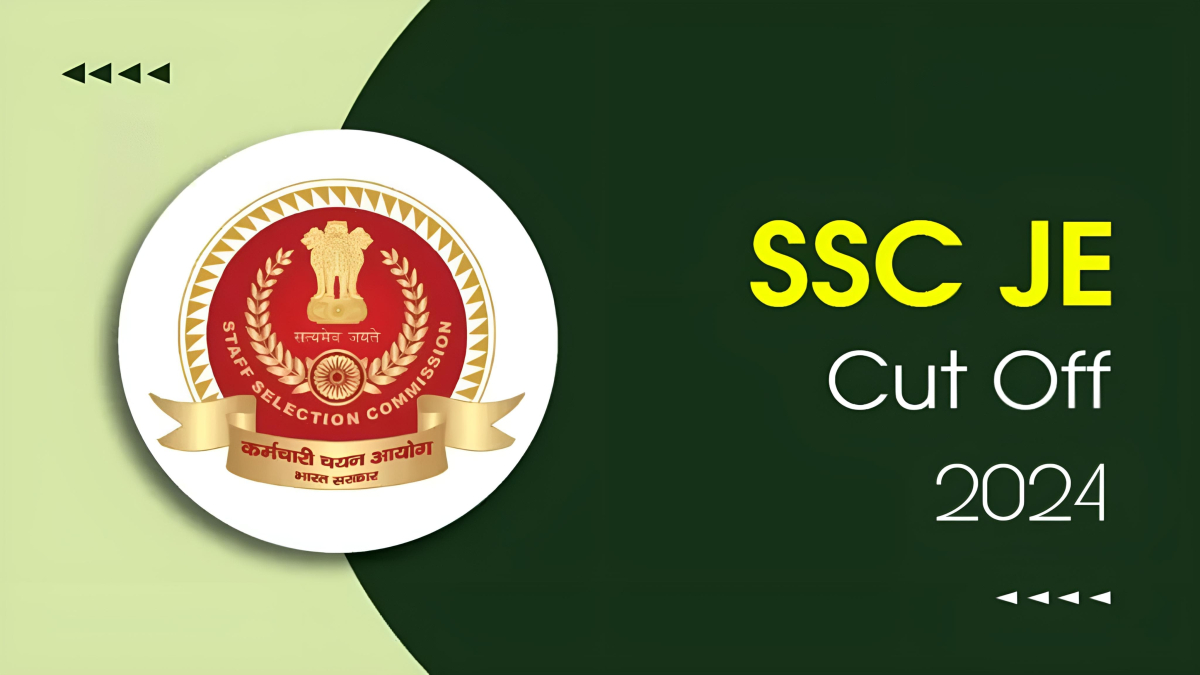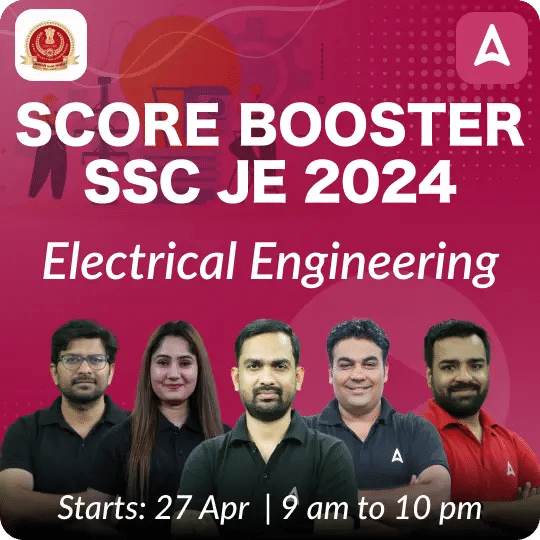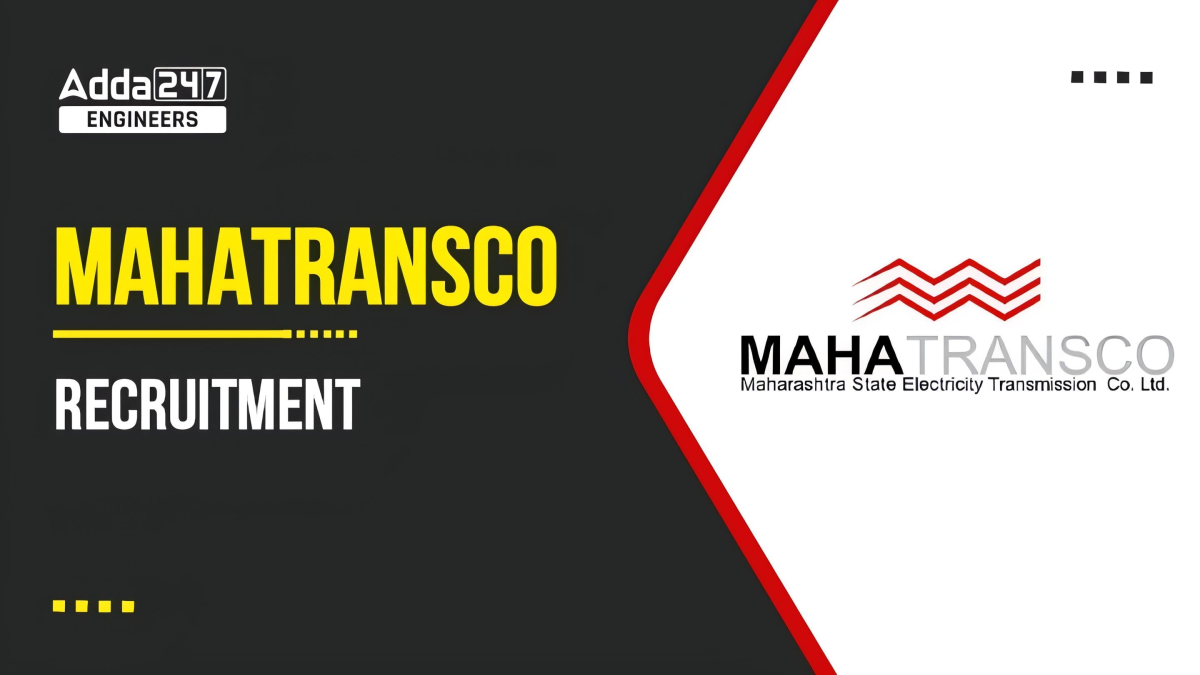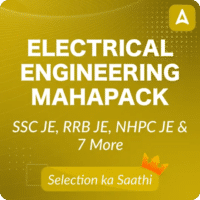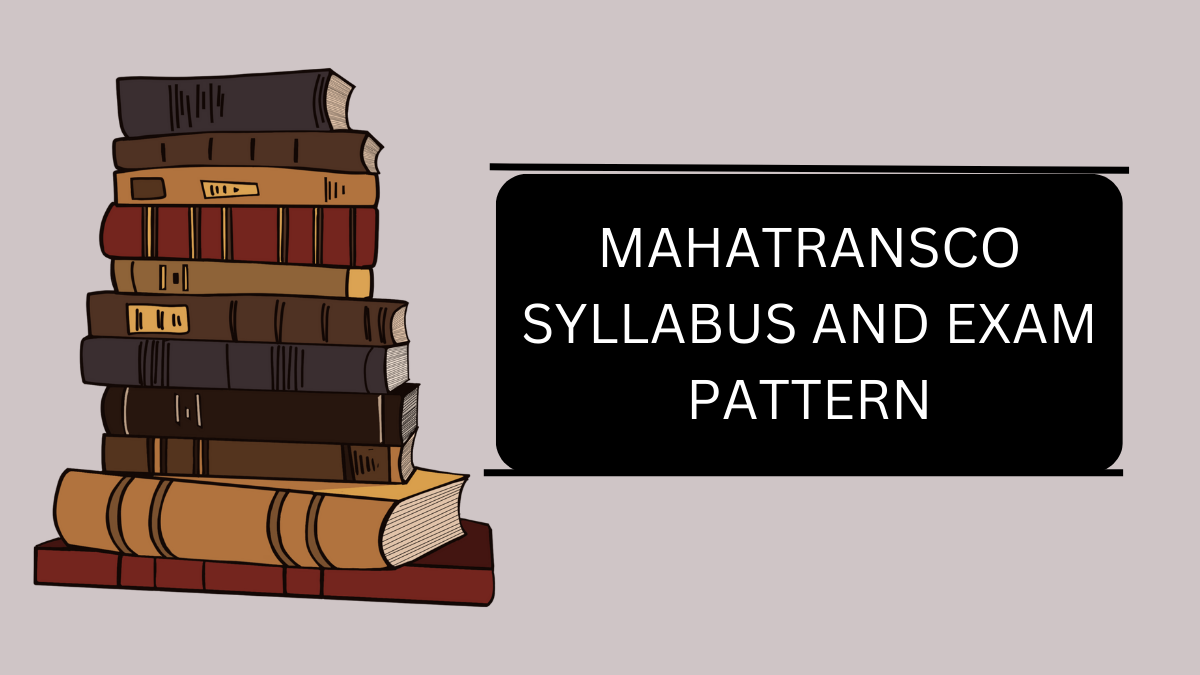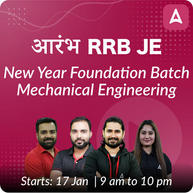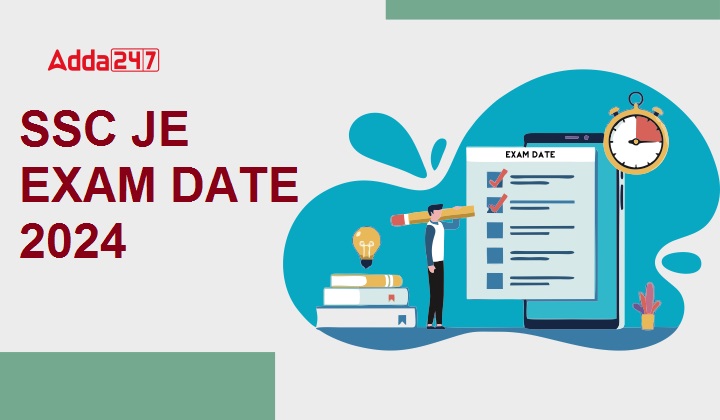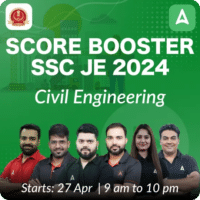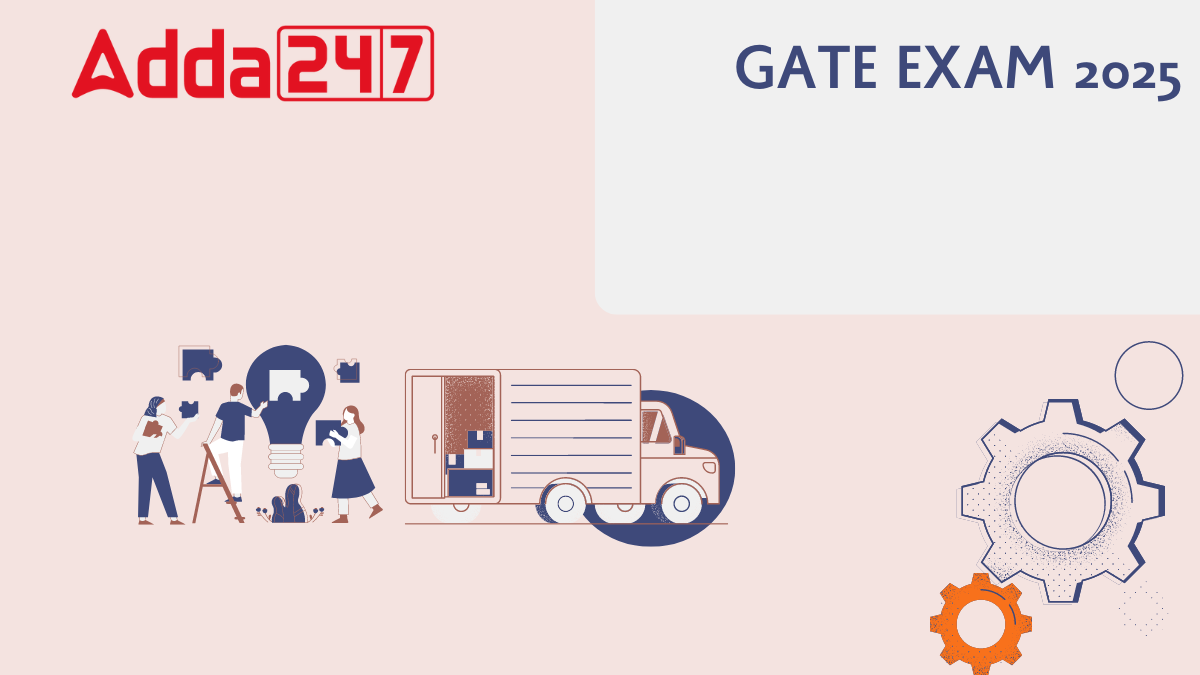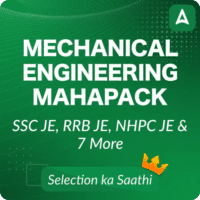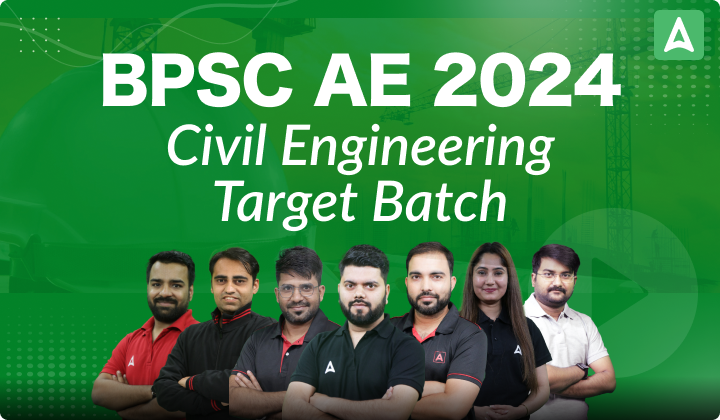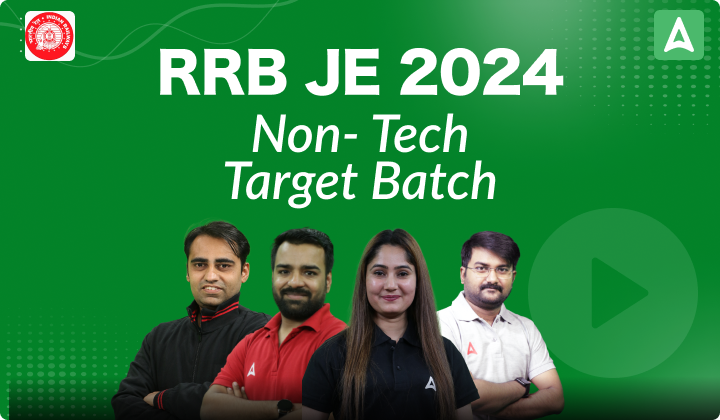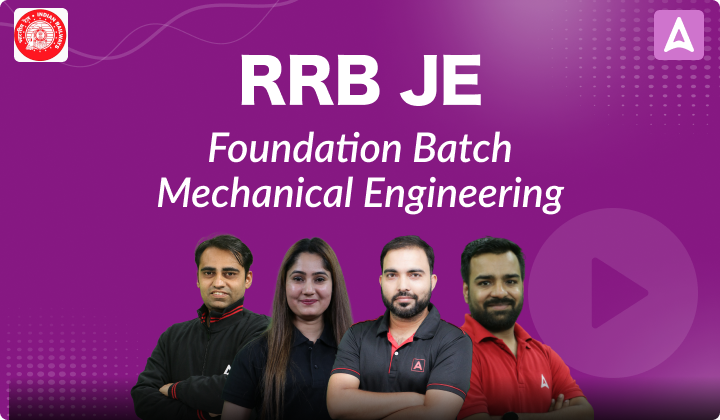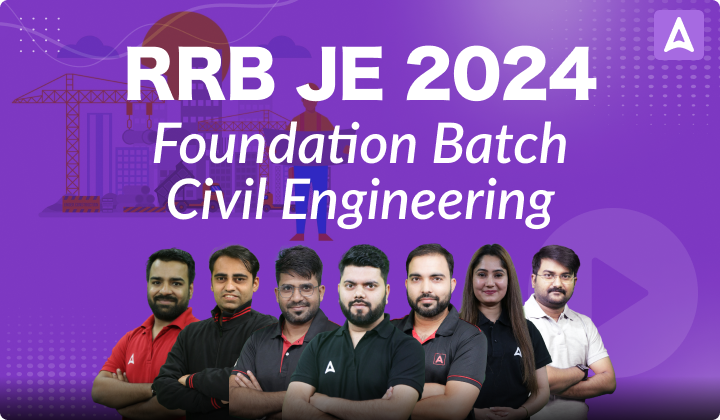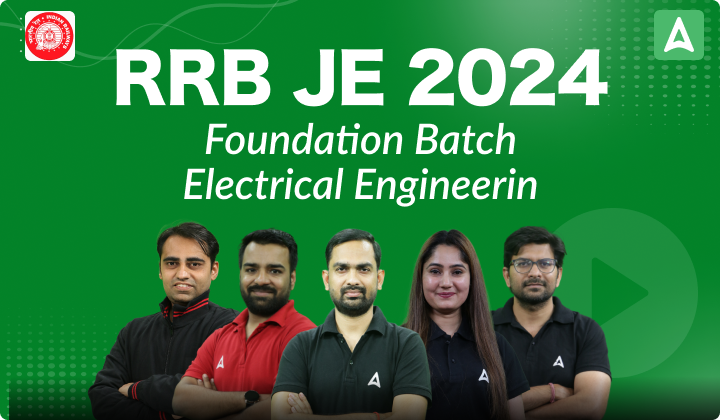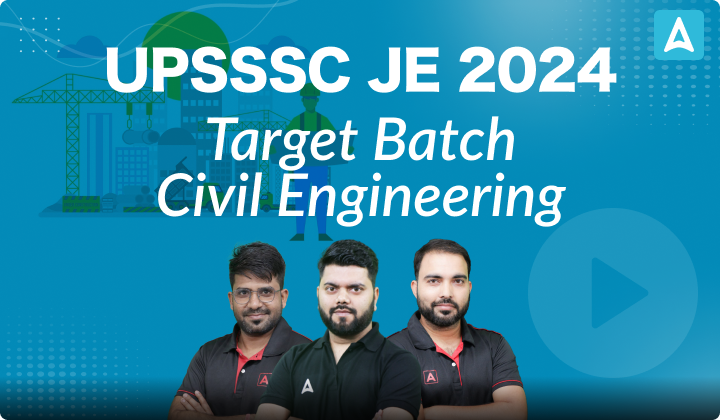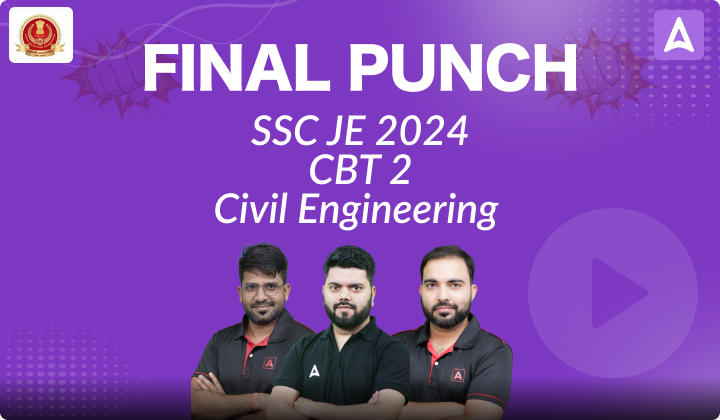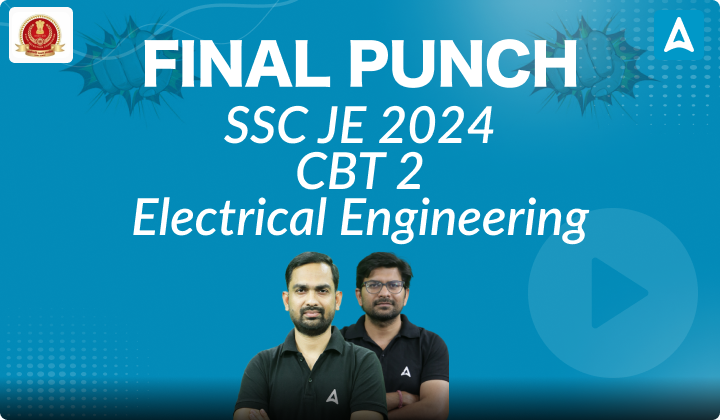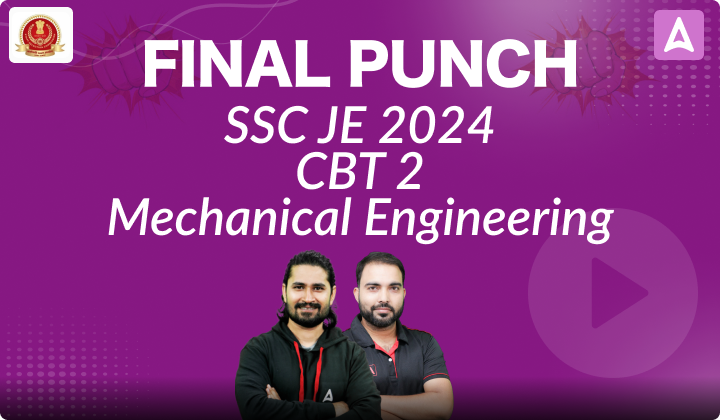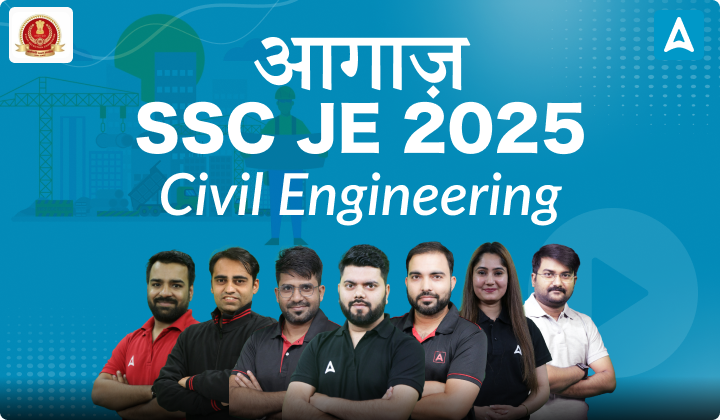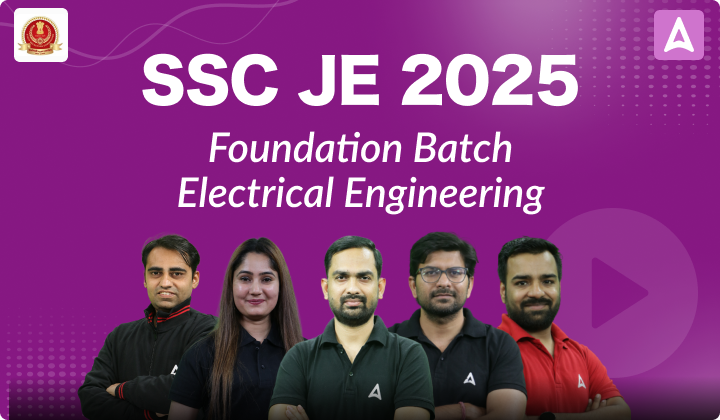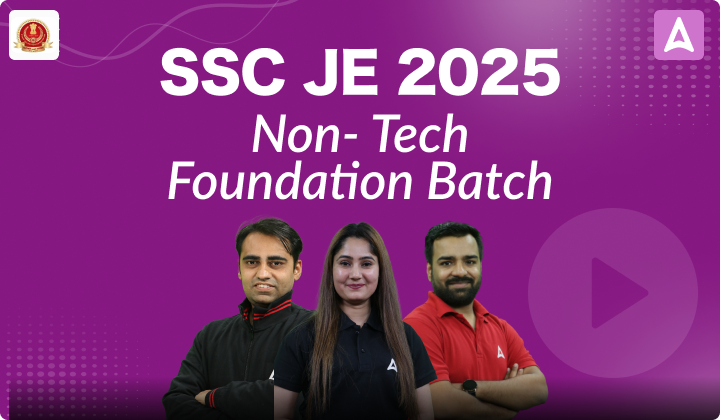Table of Contents
RRB JE 2024-Overview
RRB JE Notification 2024 is set to be released soon, and online registration will begin. Candidates should carefully review important details about RRB JE 2024, including important dates, vacancies, eligibility criteria, selection process, syllabus, admit card, and results. The exam consists of two stages: Stage 1 and Stage 2, and candidates can choose from a range of languages. It’s important to read all the relevant information about RRB Junior Engineer Recruitment 2024.
| RRB JE 2024 Recruitment |
|
| Name of the Examination | RRB Junior Engineer Exam |
| Conducting Authority | Railway Recruitment Boards (RRB) |
| Name of the Posts | Junior Engineer (JE), Junior Engineer (IT), Depot Materials Superintendent (DMS), Chemical & Metallurgical Assistant (CMA) |
| Exam Type Level | All India Level |
| RRB JE Notification | July-August 2024 |
| RRB JE 2024 Selection process |
|
| RRB JE Official Website | indianrailways.gov.in |
RRB JE Notification 2024
The official RRB JE Notification 2024 will be released soon on the official website. This notification will include important details about the exam, such as application deadlines, exam dates, how to apply, the syllabus, selection criteria, salary details, and other key information. The RRB JE 2024 recruitment will focus on finding suitable candidates for the roles of Junior Engineer (JE), Junior Engineer (IT), Depot Material Superintendent (DMS), and Chemical and Metallurgical Assistant (CMS) in the railways. Candidates can access the PDF directly through the provided link. This is a great chance for those prepared for RRB to apply for these positions through the Railway Recruitment Board RRB JE Recruitment 2024.
RRB JE Notification 2024- Click Here to Download PDF (Inactive)
RRB JE 2024-Important Dates
Here are the crucial upcoming events and dates for the RRB JE Recruitment 2024. Candidates are advised to stay tuned to this article for all the essential dates related to the RRB JE 2024 Exam.
| RRB JE Recruitment 2024-Important Dates |
|
| Events | Tentative Dates |
| RRB JE 2024 Notification Release | July-August 2024 |
| RRB JE 2024 Online Registration Start | To Be Notified |
| RRB JE 2024 Last Date of Online Registration | To Be Notified |
| Last Date of Offline Payment for RRB JE 2024 Exam | To Be Notified |
| Last Date of Submission of RRB JE Online Application | To Be Notified |
| RRB JE 1st Stage Computer Based Test (CBT – I) Date | To Be Notified |
| RRB JE 2nd Stage Computer Based Test (CBT- II) Date | To Be Notified |
| RRB JE 2024 CBT I Result Release | To Be Notified |
| RRB JE 2024 CBT II Result Release | To Be Notified |
RRB JE 2024 Eligibility Criteria
Candidates who are planning to fill out the RRB JE Application Form 2024 must fulfill the eligibility standards as per the RRB JE Notification PDF. The RRB JE Eligibility Criteria 2024 includes Educational Qualification, Age Limit, Medical Standards, etc. is given below in a detailed manner for the ease of candidates preparing for the RRB JE Recruitment 2024 Exam.
Educational Qualification
To be eligible for the RRB JE 2024 Recruitment Registration Process for the posts of Junior Engineer (JE), Chemical and Metallurgical Assistant (CMA), Junior Engineer (Information Technology Branch), and Depot Material Superintendent (DMS), candidates must meet the following essential Educational/Technical qualifications:
- Three Years Diploma in Relevant Engineering Stream.
- BE/B. Tech in Relevant Engineering Stream.
- Final Year students of Degree/Diploma are NOT ELIGIBLE to apply for the RRB JE 2024 Recruitment Examination.
Age Limit (as of 01/01/2024)
The age limit of applicants willing to apply for the RRB Junior Engineer Exam 2024 should be as under:
- Minimum Age Limit – 18 years
- Maximum Age Limit – 33 years
The Age Relaxation Criteria for RRB Junior Engineer Recruitment 2024 are given below. Candidates of reserved categories will get the age relaxations as prescribed by the Railway Recruitment Board for different posts announced under RRB JE 2024.
Age Relaxations
The age relaxation norms for the RRB JE Recruitment 2024 are explained in the table provided below.
| Community/Category | Community | Age Relaxation |
| SC/ST candidates | — | 5 Years |
| OBC-Non-Creamy Layer candidates | — | 3 Years |
| Ex-servicemen candidates who have put in more than 6 months of service after attestation | UR | 33 years plus the Number of years of service rendered in Defense plus 3 years |
| OBC- NCL | 36 Years plus Number of years of service rendered in Defense plus 3 years | |
| SC/ST | 38 Years plus Number of years of service rendered in Defense plus 3 years. | |
| Persons with Benchmark Disabilities (PwBD) | UR | 10 Years |
| OBC- NCL | 13 Years | |
| SC/ST | 15 Years | |
| Candidates have ordinarily been domiciled in the State of Jammu & Kashmir during the period from 01.01.1980 to 31.12.1989 | UR | 38 Years |
| OBC- NCL | 41 Years | |
| SC/ST | 43 Years | |
| Candidates who are serving Group ‘C’ and Group ‘D’ Railway Staff, Casual Labour, and Substitutes and put in a minimum of 3 years of service (continuous or in broken spells) | UR | 40 years of age |
| OBC- NCL | 43 years of age | |
| SC/ST | 45 years of age | |
| Candidates who are working in Quasi-Administrative offices of the Railway organization such as Railway Canteens, Co-operative Societies, and Institutes | UR | 33 years plus the length of service rendered or 5 years, whichever is lower. |
| OBC- NCL | 36 years plus the length of service rendered or 5 years, whichever is lower. | |
| SC/ST | 38 years plus the length of service rendered or 5 years, whichever is lower. | |
| Women candidates are widowed, divorced, or judicially separated from their husbands but not remarried. | UR | 35 years of age |
| OBC- NCL | 38 years of age | |
| SC/ST | 40 years of age |
Nationality
The RRB JE Recruitment 2024 application form will be accepted from candidates with the following nationalities: a resident of India, a subject of Nepal, a subject of Bhutan, a Tibetan exile who approached India before January 1, 1962, or an individual of Indian origin who has relocated from certain specified countries with the aim of settling in India permanently. Applicants belonging to these categories should have a certificate of eligibility issued by the Government of India.
RRB JE Vacancy 2024 Out
The official Railway Recruitment Board Junior Engineer Vacancy Details for 2024 have been released. Candidates interested in checking the RRB JE Vacancy 2024 should refer to this section for tentative vacancy details. The table below highlights the number of RRB JE vacancies reported in 2024 for the RRB JE Recruitment.
| RRB JE Vacancy 2024 Post Wise | |
| Posts Name | RRB JE Vacancy Details |
| RRB Junior Engineer (JE) | 7346 |
| Metallurgical Supervisor/Researcher | 12 |
| Depot Material Superintendent (DMS) | 398 |
| Chemical & Metallurgical Assistant (CMA) | 150 |
| Chemical Supervisor/Researcher | 05 |
| Total | 7911 |
RRB JE Vacancy 2024 Detailed PDF
RRB JE 2024 Exam Pattern
We have shared the complete RRB JE 2024 Exam Pattern. Candidates must see the below article to learn more about the RRB JE 2024 Recruitment Exam Pattern. After applying for RRB JE Recruitment 2024, Candidates must be familiar with the RRB JE 2024 Exam Pattern for CBT 1 as well as the RRB JE 2024 Exam Pattern for CBT 2. Both stages are objectives in nature.
RRB JE Paper 1 Exam Pattern
RRB JE 2024 Exam Pattern for CBT -1 will be having questions from
- Four different domains: Mathematics, General Awareness, General Science, and General Intelligence and Reasoning.
- The test will comprise multiple-type questions (MCQs).
- The total time to attempt the RRB JE 2024 Recruitment Exam CBT – 1 will be 90 Minutes.
- There will be 100 questions, each conveying one mark for each question.
- Wrong responses will bring about a decrease of 1/3 of the marks.
| RRB JE Paper 1 Exam Pattern | |||
| Sr. No. | Subjects | No. Of Questions | Duration |
| 1 | Mathematics | 30 | 90 minutes |
| 2 | General Intelligence & Reasoning | 25 | |
| 3 | General Awareness | 15 | |
| 4 | General Science | 30 | |
| Total | 100 | ||
RRB JE Paper 2 Exam Pattern
The RRB JE 2024 Exam Pattern for CBT – 2 will comprise an aggregate of
- Five different sections: General Awareness, Physics and Chemistry, Basic Knowledge of Computer Application, fundamentals of Environmental and Pollution, and Technical Abilities.
- It is comprised of 100 questions out of 150.
- Each correct answer will be awarded 1 mark.
- Wrong responses will decrease the 1/3rd mark.
- The time duration of RRB JE 2024 CBT-2 will be 2 hours.
| RRB JE Paper 2 Exam Pattern | |||
| Sr. No. | Subjects | No. Of Questions | Duration |
| 1 | General Awareness | 15 | 120 min |
| 2 | Physics & Chemistry | 15 | |
| 3 | Computer Application Basics | 10 | |
| 4 | Environment & Pollution (Basics) | 10 | |
| 5 | Technical Ability | 100 | |
| Total | 150 | ||
RRB JE 2024 Registration
The official registration process for RRB JE 2024 Recruitment will be provided in the official RRB JE 2024 Notification. Candidates are advised to bookmark this page for future updates regarding the RRB JE Recruitment. To successfully apply for RRB JE Recruitment 2024, applicants can follow these steps:
- Visit the official RRB website.
- Select and open the region to which you belong or where you intend to apply for RRB JE 2024 Recruitment.
- Register by providing your name, email ID, and personal mobile number for the RRB JE 2024 application process.
- Sign in using the enrollment number and password created during registration.
- Complete all the required details as specified in the application form.
- Choose the specific post you wish to apply for.
- Make the application fee payment using methods such as Visa, debit card, credit card, net banking, etc.
- Click “Submit” to finalize the registration process.
RRB JE 2024 Documents Required
Candidates applying for the RRB JE 2024 Recruitment should ensure they have soft copies of the following documents ready before starting the application process:
- A passport-sized photo in JPEG format with dimensions of 35mm X 45mm and a maximum size of 240 KB.
- A government ID, such as an Aadhar Card or PAN card, in JPEG format with a maximum size of 500 KB.
- Educational qualification certificates, including marksheets for classes 10th, 12th, and Graduation (Diploma or Degree).
- A signature in JPEG format with dimensions of 80mm to 35mm and a size not exceeding 240 KB.
RRB JE 2024 Application Fee
The candidates are allowed to register through the official RRB JE Recruitment 2024 Online portal. The RRB JE 2024 Recruitment Application fees are Rs.500/- for the General Category and Rs.250/- for the females. The detailed category-wise RRB JE 2024 Recruitment Application fee is tabulated below.
| Sr. No. | Categories | Fees |
| 1. | Unreserved | Rs. 500 |
| 2. | SC/ST/Minorities/EWS | Rs. 250 |
| 3. | Ex-Serviceman/PwBDs/Female/Transgender | Rs. 250 |
RRB JE 2024 Salary
RRB JE Training Period Salary
The table below outlines the salary structure for RRB JE during the training phase. Effective September 28, 2022, the Government of India has increased Dearness Allowances for all government employees, impacting both Gross and In-hand Salary. The Dearness Allowance, constituting 38% of the basic pay, will be implemented from September 2022 onwards. Updated RRB JE 2024 salary details can be found below.
| RRB JE Salary Structure | |
| Salary Components | Amount (In Rs.) |
| Basic Pay | Rs. 35,400/- |
| Dearness Allowances | Rs. 10,974/- (31% of Basic Pay) |
| Total | Rs. 46,374/- (No Deductions) |
RRB JE After Training Salary
The candidates will receive the full salary after the completion of training successfully. The basic pay of Rs. 36,500/- will be offered along with all the allowances like TA, DA, HRA, etc. Refer to the below table to get the detailed salary structure for RRB JE after completion of training.
| RRB JE Salary Structure | |||
| Income (Gross) | Deductions | ||
| Salary Components | In Rupees | Salary Components | In Rupees |
| Basic Salary | Rs.36,500/- | Income Tax | Rs.6163/- |
| Dearness Allowances (DA) | Rs.11,315/- | Professional Tax | Rs.200/- |
| House Rate Allowances (HRA) | Rs.9855/- | Miscellaneous Tax | Rs.1000/- |
| Travel Allowances (TA) | Rs.4716/- | ||
| Total | Rs.62386/- | Total | Rs.7363/- |
| Net In-Hand Salary: Rs.55,023/- | |||
RRB JE 2024 Career Growth
Candidates should have a clear vision of life after the RRB Junior Engineer 2024 selection. These include promotions & career growth after getting selected as a Junior Engineer. Below we have shared the career growth hierarchy followed by the Indian Railways for Junior engineers under RRB JE 2024 Career Growth
- Junior Engineer
- Senior Section Engineer/Senior Engineer
- Assistant Divisional Engineer (AEN)
- Divisional Engineer (DEN)
- Senior Divisional Engineer (Sr. DEN)
RRB JE 2024 Selection Process
The selection process for the RRB (Railway Recruitment Board) Junior Engineer (JE) typically involves multiple stages. The exact selection process may vary slightly between different RRB regions. Here is a general overview of the RRB JE selection process:
- Computer-Based Test (CBT) Stage 1: The first stage of the selection process is a computer-based test. It consists of multiple-choice questions covering various subjects such as General Intelligence and Reasoning, Mathematics, General Awareness, and General Science. The CBT stage 1 is primarily a screening test, and candidates need to achieve the minimum qualifying marks to proceed to the next stage.
- Computer-Based Test (CBT) Stage 2: Candidates who qualify in the CBT stage 1 will be eligible to appear for the second stage, which is also a computer-based test. The CBT stage 2 is more comprehensive and in-depth, focusing on technical subjects related to the specific engineering discipline chosen by the candidate. The subjects may include topics such as Civil Engineering, Electrical Engineering, Mechanical Engineering, Electronics Engineering, etc.
- Document Verification: Candidates who clear the CBT stage 2 will be shortlisted for document verification. In this stage, candidates need to provide the necessary documents to prove their eligibility, such as educational certificates, caste certificates (if applicable), identity proof, and other relevant documents. It is important to have all the required documents in order and meet the eligibility criteria set by the RRB.
- Medical Fitness Test: After document verification, candidates are required to undergo a medical fitness test conducted by the Railway Administration to ensure they meet the medical standards necessary for the job. The medical fitness criteria vary depending on the nature of the job and the standards set by the Railway Administration.
- Final Merit List: The final merit list is prepared based on the performance of candidates in the CBT stage 2. The merit list determines the selection of candidates for the post of Junior Engineer. Candidates who are placed high on the merit list have a higher chance of being selected for the job.
Candidates need to stay updated with the official notifications and guidelines provided by the respective RRB region for accurate and detailed information regarding the selection process, examination pattern, and other related aspects.
RRB JE Study Material
Candidates can check out all the study material related to RRB JE 2024 from the ADDA247 application. All the Courses and Test series are designed and analyzed by the expert Faculty of ADDA247 according to the requirements of candidates. Click on the link below to reach the study material Page directly.
CLICK HERE for all Study Materials for RRB
Aspirants can also refer to the official Youtube channel of ADDA247 for RRB JE 2024 Material by the direct link provided below
CLICK HERE for YouTube Study material for RRB JE 2024
RRB JE 2024 Preparation Strategies
Here are some tips and tricks to ace RRB JE exam 2024-
- Complete your syllabus. Completing the entire syllabus is the first step toward clearing any examination.
- Practice mock tests. Practicing mock tests gives you an edge over the other aspirants. Solve the sectional mocks as well. It will maximize your chances of getting selected for the examination.
- Work on weak areas. We tend to ignore our weak areas as it gets difficult for us. Don’t ignore weak areas. Clear your doubts and score well in the examination.
- Stay relaxed and focused. Keep preparing for this exam and remain relaxed throughout the journey. A completely dedicated mind can achieve anything it desires.
- Stay updated with the notifications updates and everything regarding the exam. Never miss out on anything.
RRB JE 2024 Zone and Divisions
Below we have provided a table referring to the detailed Zones, Divisions, and Headquarters for the RRB Junior Engineer 2024 Recruitment.
| Sr. No. | Name of the Railway Zone | Zonal Headquarter | Division |
| 1 | Central Railway | Mumbai | 1) Mumbai 2) Nagpur 3) Bhusawal 4) Pune 5) Sholapur |
| 2 | Eastern Railway | Kolkata | 1) Howrah-I 2) Howrah-II 3) Sealdah 4) Malda 5) Asansol 6) Chittaranjan 7) Kolkata Metro |
| 3 | East Central Railway | Hajipur | 1) Danapur 2) Mugalsarai 3) Dhanbad 4) Sonpur 5) Samastipur |
| 4 | East Coast Railway | Bhubaneshwar | 1) Khurda Road 2) Waltair 3) Sambalpur |
| 5 | Northern Railway | Baroda House, New Delhi | 1) Delhi-I 2) Delhi-II 3) Ambala 4) Moradabad 5) Lucknow 6) Firozpur |
| 6 | North Central Railway | Allahabad | 1) Allahabad 2) Jhansi 3) Agra |
| 7 | North Eastern Railway | Gorakhpur | 1) Izzatnagar 2) Lucknow 3) Varanasi 4) DLW |
| 8 | North Frontier Railway | Maligaon, Guwahati | 1) Katihar 2) Alipurduar 3) Rangiya 4) Lumding 5) Tinsukhia |
| 9 | North Western Railway | Jaipur | 1) Jaipur 2) Jodhpur 3) Bikaner 4) Ajmer |
| 10 | Southern Railway | Chennai | 1) Chennai 2) Madurai 3) Palghat 4) Trichy 5) Trivandrum |
| 11 | South Central Railway | Secunderabad | 1) Secunderabad 2) Hyderabad 3) Guntakal 4) Vijayawada 5) Nanded |
| 12 | South Eastern Railway | Garden Reach, Kolkata | 1) Kharagpur 2) Adra 3) Chakradharpur 4) Ranchi 5) Shalimar |
| 13 | South East Central Railway | Bilaspur | 1) Bilaspur 2) Nagpur 3) Raipur |
| 14 | South Western Railway | Hubli | 1) Bangalore 2) Mysore 3) Hubli 4) RWF/YNK |
| 15 | Western Railway | Churchgate | 1) BCT 2) Vadodara 3) Ahmedabad 4) Ratlam 5) Rajkot 6) Bhavnagar |
| 16 | West Central Railway | Jabalpur | 1) Jabalpur 2) Bhopal 3) Kota |
| Related Articles | ||
| RRB JE Vacancy | RRB JE Eligibility Criteria | RRB JE Salary |
| Previous Year Cut-Off | RRB JE Selection Process | RRB JE Preparation Strategy |


